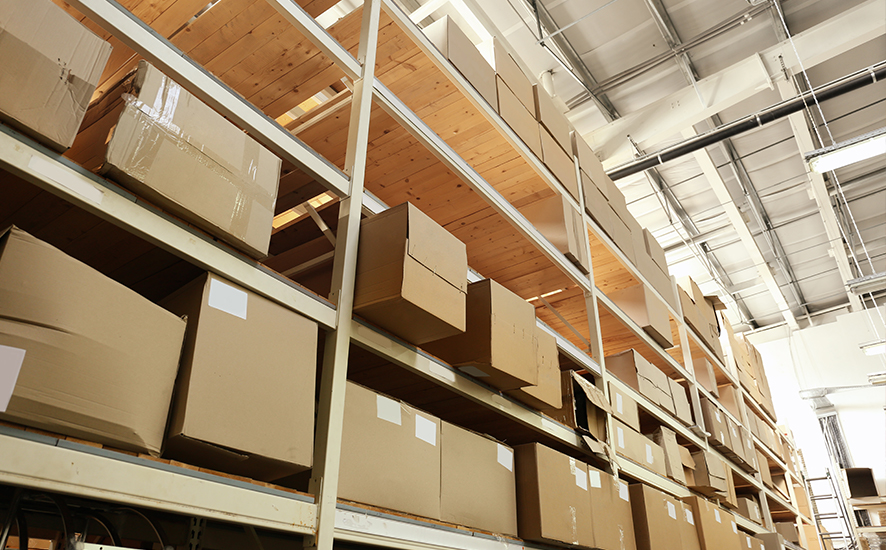E-commerce is not only growing fast, but companies are also selling more and more to other companies, rather than just individual customers. This is known as the B2B wholesale. According to Gartner’s study – 80% of B2B sales interactions between suppliers and buyers will occur in digital channels by 2025.
Thinking about growing your store or starting a business-to-business (B2B) venture? Selling wholesale might be a great option for you. In this article, we’ll look into the benefits of running a B2B wholesale store. You’ll see how it can open up new ways to make revenue and grow your business.
Whether you’re already in business or just getting started, this post will help you decide if wholesale is right for you.
Selling wholesale to businesses
According to Shopify, B2B wholesale refers to selling products to another business, in bulk and at a discount. It’s a massive market, generating hundreds of billions of dollars in sales each month.
Wholesale selling means selling products at discounted prices to retailers or other businesses for resale or internal use. When you sell wholesale online, you sell larger quantities, negotiate prices, and build long-term partnerships with other businesses.
There are tools and apps including POS software that can help you automate many things, like letting customers sign up and check out, offering different wholesale prices, and using other businesses to fulfill orders.
Examples of B2B wholesale online stores
The B2B sector is huge and it is only getting bigger. This provides plenty of opportunities and benefits to businesses. Today, different businesses are using B2B e-commerce platforms to access wholesale customers.
Here are some examples:
Momofuku
Momofuku was founded by chef David Chang in 2004. The brand has restaurants in the United States, as well as a line of products for home cooks. It sells their products (direct-to-customers) DTC, but they also use a B2B wholesale marketplace to distribute to other businesses.

Momofuku partners with Faire for B2B orders. They also offer bulk orders, which are adjusted on a case-by-case basis and discounts are applied based on volume. The restaurant is currently working on corporate gifting options.
Brooklinen
Brooklinen is a luxury bedding brand, founded in 2014 by Vicki and Rich Fulop out of pure desire to deliver simple, beautiful, high-quality home essentials at a fair price.

Brooklinen uses a B2B model to supply their products to hotels and other businesses. They have a separate Shopify store for business buyers, so they can accommodate their shopping experience depending on customer type.
According to Brooklinen, the B2B wholesale model enables their team to build relationships with customers, instead of just transacting with them, to spend more time understanding their customers and less on manual inputs. This allows them to provide exceptional shopping experiences.
Syra Coffee
Syra Coffee is a Spanish coffee shop and store that started in Barcelona in 2015, and expanded to some other cities like Madrid, Seville, and Valencia over time. They have a hybrid sales model that includes:
- serving coffee at their physical locations,
- selling their products – coffee, tea, machines, and accessories – through their online store,
- and providing a coffee subscription to offices.

Syra Coffee’s B2B customers can learn more about their coffee and the products they are offering on the B2C store and product pages (there is no separate page for B2C and B2B customers).
When the customers are ready to get a coffee subscription for their office, they can select a subscription plan. Syra suggests that the subscription plan should be chosen based on the number of employees the office has. Customers can see the price for each plan on the spot, without logging in.

That is all you need to get a monthly coffee subscription for the office. Super easy. The process is quick, with minimal forms and clear benefits.
After going through these examples, it is clear that you can make an awesome shopping experience for both DTC and B2B customers. Let these examples inspire you to take action for your B2B wholesale store.
Advantages of a B2B wholesale business
There are definitely many advantages to running a B2B wholesale store. Some of them include lower costs, better buyer experience, automatization of processes, and many more, which will be explained in the following sections.
Larger order volumes
One of the greatest benefits of running a B2B wholesale store is the potential for larger order volumes. Unlike B2C/DTC sales where customers buy a few items at a time, B2B customers usually purchase in bulk. This means you can sell more products at once, which means higher revenue from each transaction.
For example, if you’re selling office supplies, a business may need to buy hundreds of pens, paper clips, or notebooks in one purchase, as opposed to just a few that a regular customer might buy.
Building long-term relationships
Wholesale businesses often create long-lasting relationships with their customers. When businesses find reliable suppliers, they tend to stick with them for a longer period. As a wholesaler, your goal is to provide consistent value through good pricing, quality products, and efficient delivery.
These repeat customers can give you a more stable source of income than regular one-time sales in a B2C model. Building strong relationships usually opens up the chance for feedback and product improvement, which can further help grow and develop your business.
Predictable cash flow
Larger orders and long-term contracts typically bring a more predictable cash flow to B2B wholesale stores. Since B2B clients usually place regular orders, you can anticipate when and how much stock to produce or buy, which helps you manage inventory and finances better.
It is easier for you to plan business growth, manage expenses, and invest in areas where you need improvement.
Custom pricing and discounts
Unlike regular online stores, B2B wholesalers often need to offer different prices depending on the client, the quantity of products purchased, and the business relationship. Setting custom prices or offering tiered pricing helps you cater to a variety of clients with different needs.
We already mentioned this in the examples above – brands use custom models for their different customer groups or they plan on a case-by-case basis.
Simplifying wholesale operations with Wholesale Pricing Discount
In case you’re running a wholesale Shopify store, the Wholesale Pricing Discount (WPD) can help you handle your wholesale pricing and operations. This app allows you to manage different discount types such as percentage discounts, custom pricing, volume/tiered discounts, and discount codes.
Here are a few key features that make WPD stand out:
- Flexible pricing: Set different prices for different clients based on their purchase volume or relationship with your business.
- Quantity breaks and tiered pricing: Offer discounts based on the amount purchased, encouraging clients to buy more to save more.
- Custom shipping and payment terms: Tailor your shipping rates and payment options, such as net payment terms, to suit your B2B clients.
With the Wholesale Pricing Discount, you can create a great experience for your B2B clients, making it easier for them to purchase and helping you increase your revenue.
Reduced marketing costs
B2B wholesale marketing is different from retail. Wholesale businesses usually rely more on relationship-building and referrals than large-scale advertising. You won’t need to spend as much on paid ads or promotional campaigns to maintain your client base.
In B2B, your clients are more likely to return if they trust your service and products, which reduces the need for costly customer acquisition strategies.
Selling to a global market
B2B e-commerce allows you to sell products not just locally but also internationally. With the right tools, such as Shopify’s multi-currency support and international shipping integrations, you can expand your market to businesses around the world. This opens up endless growth opportunities.
With the WPD you can sell globally: The app integrates with Shopify Markets, allowing you to go global with support for multi-currency pricing and VAT-inclusive or exclusive options.
Easily manage your operations
Running a B2B wholesale store usually involves handling larger orders, managing bulk inventory, and ensuring timely deliveries. By using different e-commerce platforms, like Shopify, you can simplify many of these operations. Wholesale businesses benefit from features like bulk product management, automated invoicing, and integration with shipping providers, which help you run your store efficiently.
Apps like the Wholesale Pricing Discount also make it easier to manage large amounts of data and pricing options, making sure everything runs smoothly.
Different business needs
B2B businesses come in various forms, from small startups to large corporations, and each of them may have different needs. Offering flexibility in how your clients order, pay, and receive products can set you apart from competitors.
By providing options like net payment terms, custom pricing structures, and the ability to place large orders quickly, you make it easier for other businesses to choose you as their supplier. This level of customization is a significant advantage in the B2B space.
Conclusion: Why B2B wholesale is a smart move?
Various benefits can come with operating a B2B wholesale store, such as increased order volumes, steady cash flow, and the chance to form lasting relationships with customers. Expanding your e-commerce business into B2B wholesale could be the step that takes your store to the next level, allowing you additional security, growth options, and the potential to sell to clients across the globe.
The world of B2B wholesale offers an extensive range of opportunities, despite your level of experience or desire to expand your current business. Contact Magestore to explore wholesale POS solutions to streamline order fulfillment and vendor management.




![6 Best Shopify Shipping Rate Apps [2025] shopify shipping rate](https://blog.magestore.com/wp-content/uploads/2025/03/shopify-shipping-rate-270x180.png)